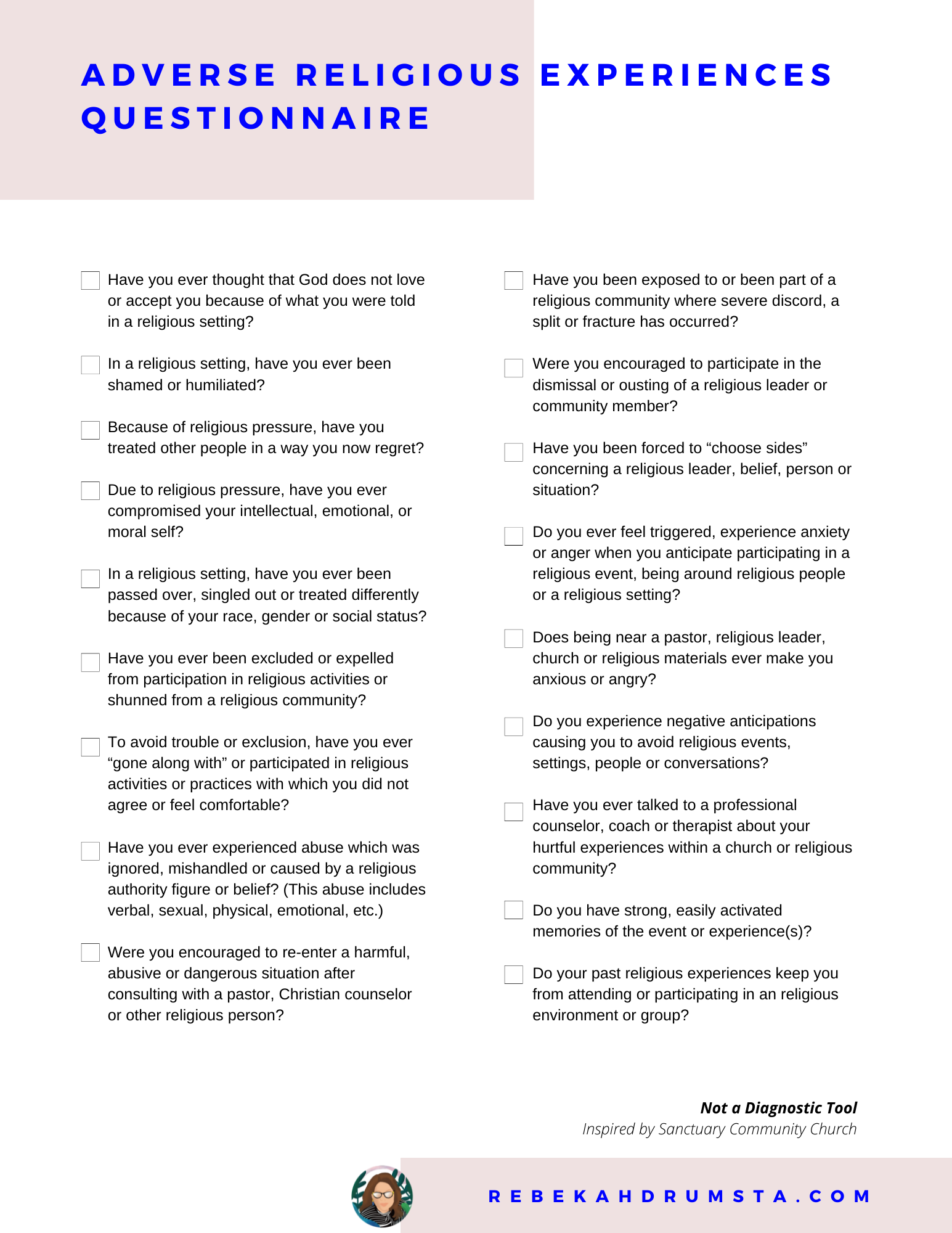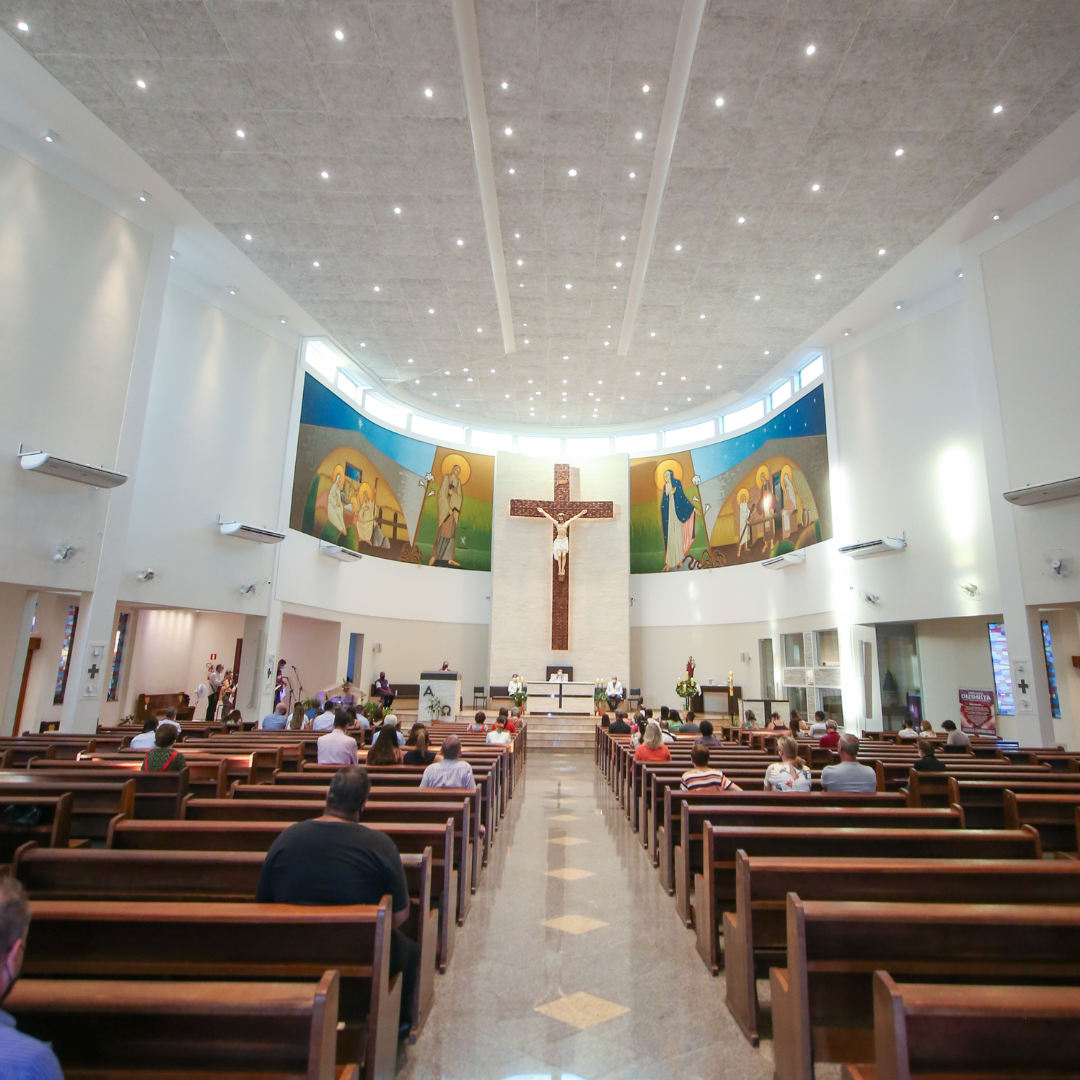Embracing Healing: The Journey of a Church Leader Recovering from Religious Trauma
As I sit down to share my thoughts and experiences, I am reminded of the transformative power of vulnerability and the courage it takes to confront our deepest wounds. My journey recovering from religious trauma has been filled with twists and turns, leading me to the profound realization that healing is a sacred and ongoing process.
If you are reading this and are a pastor, Sunday School teacher, church staff member, deacon or hold any other leadership position in a church or religious organization and you have started to question if there is harm being done or you see there has been harm done in the name of Christianity, the Bible or Jesus, I am so proud of you for taking a bold, courageous and honorable step towards a faith that is undefiled and untainted and reflects the heart of Jesus.
In this blog post, I invite you to join me on this transformative path, as we explore what it truly means to be a church or religious leader on the journey of recovering from religious trauma.
Acknowledging Religious Trauma
The first step towards healing is acknowledging the presence of religious trauma in our lives. For spiritual or religious leaders, it may seem paradoxical to admit the existence of wounds caused by the very beliefs or communities we have devoted ourselves to uphold. However, by gently peeling back the layers of denial, we create space for healing and liberation.
Unsure if you’ve experienced religious trauma? Here’s the definition use by Religious Trauma Network:
The deep psychological and spiritual injuries that arise from overwhelming experiences, relationships, abuses, or systemic issues within a religious context, leading to lasting adverse effects on an individual's mental, emotional, and social well-being.
This trauma disrupts one's core beliefs and sense of safety, often resulting in a painful process of deconstructing and rebuilding one's identity and worldview. Religious trauma is the result of a spiritually abusive situation, system, person, experience or belief system.
Another way to begin embracing awareness about your own lived experiences is by reviewing this Adverse Religious Experiences Questionnaire.
Revisiting Past Experiences: Confronting the Pain
As leaders, our roles often involve guiding others through their pain, but we, too, carry our own burdens. Revisiting past experiences that contributed to religious trauma can be challenging, evoking feelings of shame, guilt, and vulnerability. However, in this process of confronting our pain, we discover the potential for profound growth and compassion.
Often times this will include facing our own childhood or generational traumas, getting qualified mental health support for the first time, learning things about ourselves that aren’t so pretty or gaining a new vocabulary that includes mental health knowledge.
Push-back is common when a church leader begins to see a therapist or starts using mental health terminology in their teachings. Remember, you were made mind, body and soul. One is not more or less important than the other.
It is vital that before building a new, or different system or way of “doing church” leaders stop long enough to find healing for their physical, emotional and psychological hurts. These hurts may include, but are not limited to, church hurt, religious trauma, childhood abuse, family conflict and sexual abuse.
Finding a licensed therapist and/or qualified coach who understands religious trauma is an important step to help you keep moving towards healing.
Here are 10 Questions to Ask When Seeking a Therapist Who is Religious Trauma-Informed.
Redefining Our Spiritual Identity
Recovering from religious trauma frequently involves redefining our spiritual identity on our own terms, or what I call claiming one’s Spiritual Autonomy. As we sift through the remnants of dogma, handed down theologies and unhelpful or toxic beliefs, we can uncover the essence of our authentic, God-given spirituality. As we lean into change, expand our minds to welcome learning and growth, and understand what it means to be truly vulnerable, we can lead with integrity, authenticity, and an open heart and from a place of healing instead of hurt.
Sometimes, as we begin healing from religious trauma, it’s common to experience a Spiritual Identity Disruption. But take heart, you are not alone!
Extending Grace to Ourselves
As spiritual leaders, we often hold ourselves to high standards of grace and compassion for others. Yet, we may struggle to extend the same kindness to ourselves. Embracing self-compassion means allowing ourselves to be imperfect, recognizing that healing is a journey, and that it's okay to lean on others for support.
Perfection is not the goal. Leading from a place of humanness is very much in line with the ministry of Jesus.
Redefining Leadership
In the process of recovering from religious trauma, we reimagine our role as spiritual leaders. Our focus shifts from dogmatic authority to fostering inclusivity of other opinions, empowerment, and open dialogue. We recognize that every individual's spiritual journey is unique and honor their autonomy to make choices that align with their conscience, experience and the beliefs they have worked out. Seeing people as accountable to God for their beliefs and not to a pastor, denomination, or group brings freedom and expands our view of God and who is welcomed into fellowship.
True leadership isn’t being the one on the stage or with your name on a sign. True leadership is empowering those around you to use their skills and abilities, seeing the strengths and talents in someone and helping them develop, and fostering a space that is safe for those in our community.
Building a Supportive & Trauma-Informed Community
Finding solace in a supportive community of like-minded individuals can be a crucial aspect of healing for spiritual leaders. As we share our stories, vulnerabilities, and insights, we create authentic connections that reaffirm our shared humanity and resilience.
Join an online group, attend workshops or retreats, intentionally meet up with other leaders who are also recovering from religious trauma. You don’t have to process and work towards healing alone - there are others who are also on this same journey of dissecting harmful teachings, experiences systems or beliefs who will support you along the way.
A beautiful thing about recognizing how religious trauma has impacted your own life is that now you can foster this is your home, church or religious community too! You can break the cycle of religious trauma.
Integrating Wisdom from Religious Trauma
While the scars of religious trauma may never fully vanish, we can integrate the lessons and wisdom they offer into our leadership. Cultivating empathy for the pain and stories of others, we become more attuned to the needs of those we serve, guiding them with a gentle understanding born from our own healing journey.
Post traumatic growth does happen. The wisdom gained from facing your religious trauma head on can be integrated into your ministry going forward.
The journey of a church or religious leader recovering from religious trauma is an invitation to embrace vulnerability, courage, and your own God-breathed humanness. It is a call to rediscover the beauty of our faith, stepping into our role as guides with a newfound sense of being trauma-informed and empowering those around us. As we weave the threads of healing into the tapestry of our lives, we find strength not only in our ability to support others but also in our capacity to find healing for ourselves.
To spiritual leaders on a similar path, I offer the hopful reminder again that you are not alone. As we embark on this journey of renewal, let us be kind to ourselves and celebrate each step forward, knowing that our healing ripples outward, touching the lives of those we serve.
Together, we can create a sacred space where healing flourishes, and the transformative power of compassion, understanding and love takes root. The darkness of abuse, trauma and evil do not get to win.
This article is not intended to treat or diagnose any condition.
Rebekah is not a licensed therapist or clinician. Any advice or opinions given on this site are strictly her own observation and insights based on personal experiences and study. It should in no way take the place of professional assistance.





